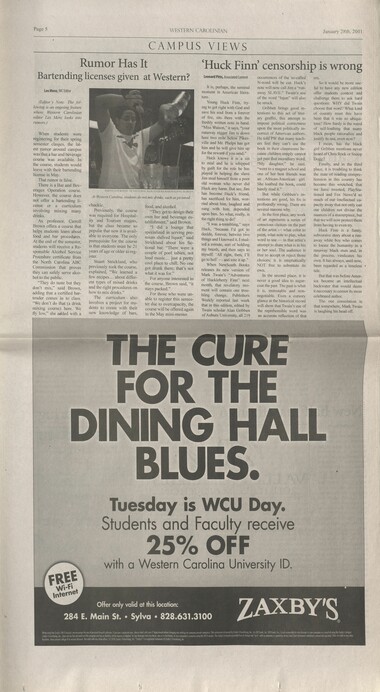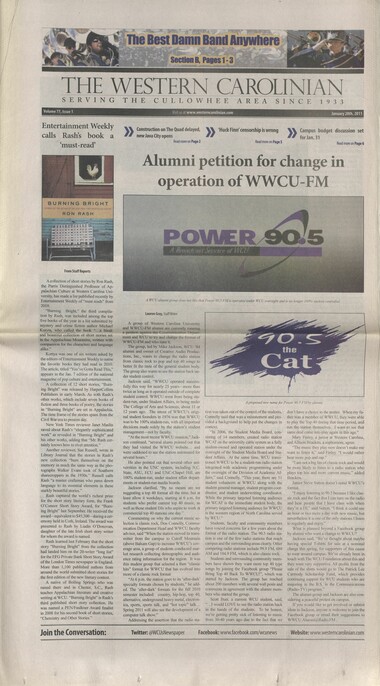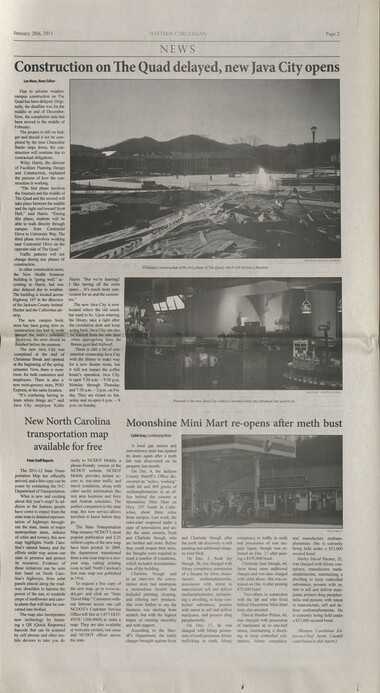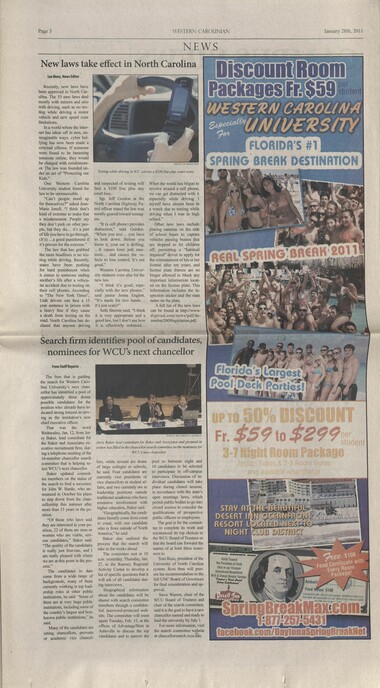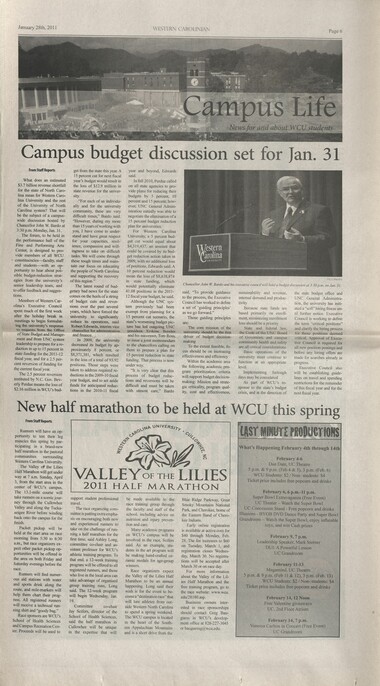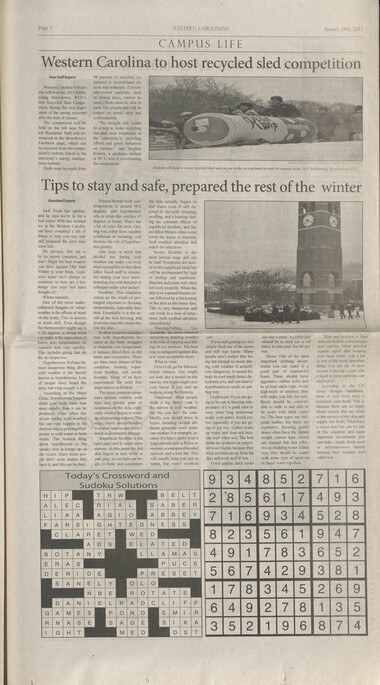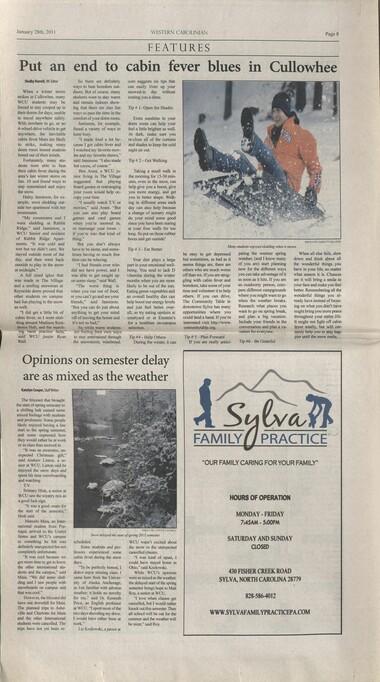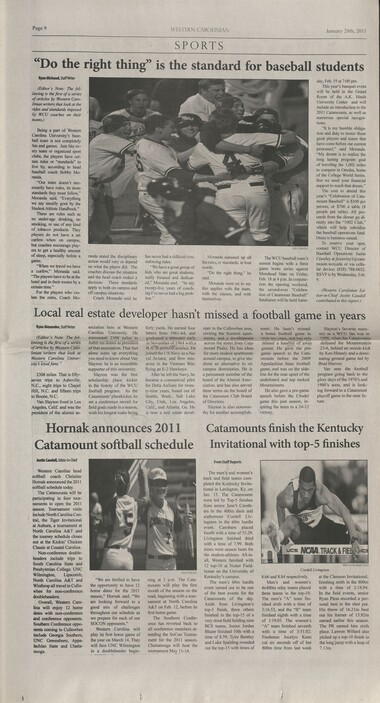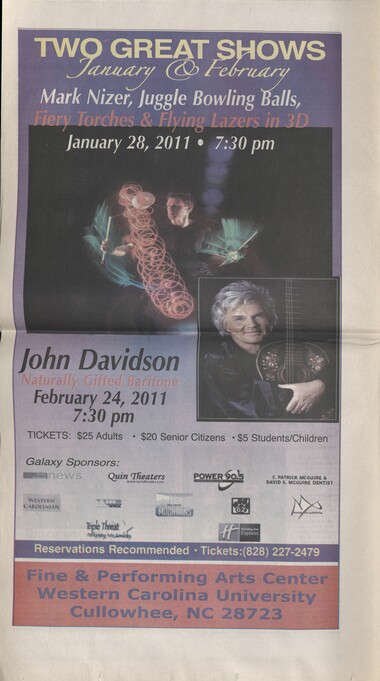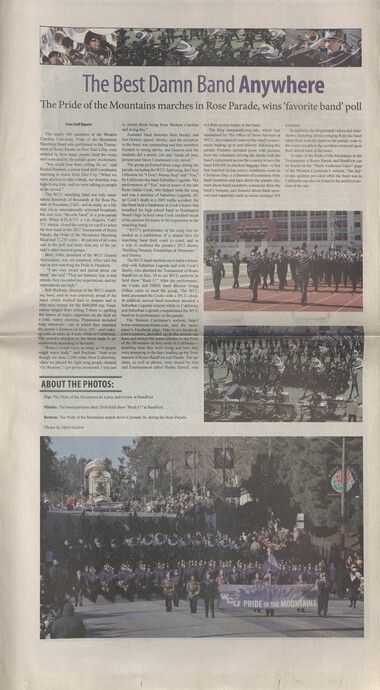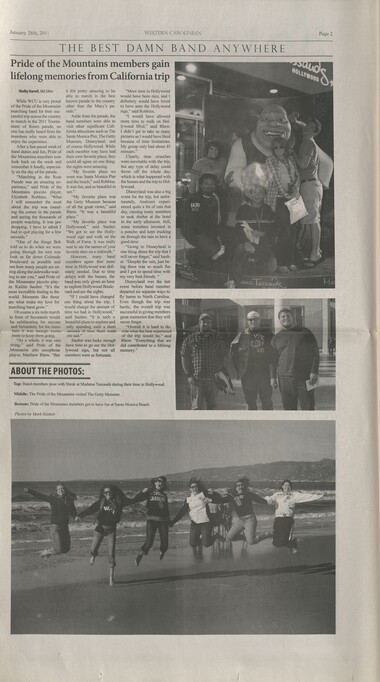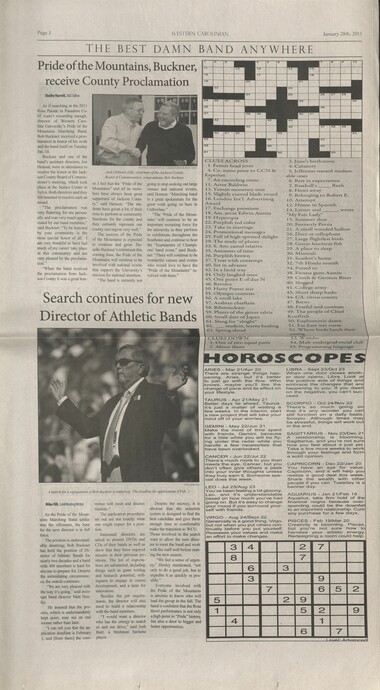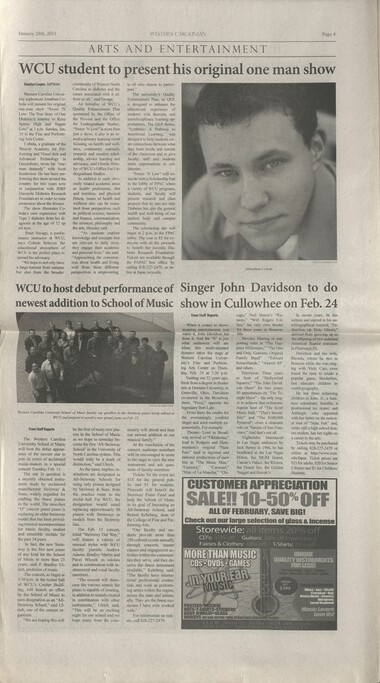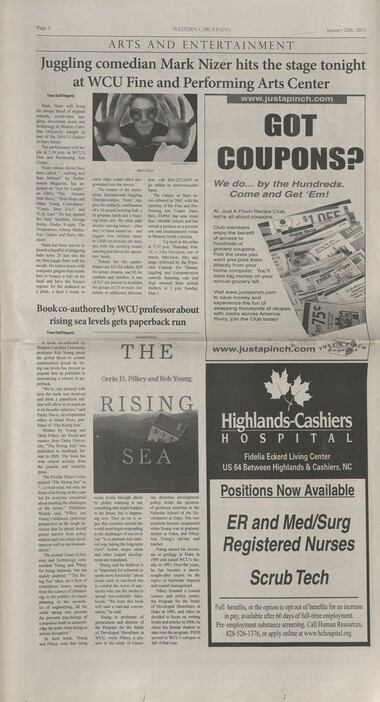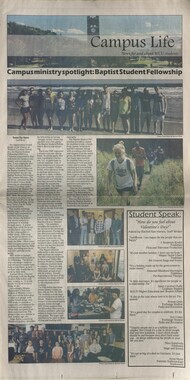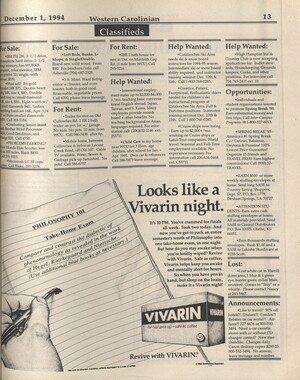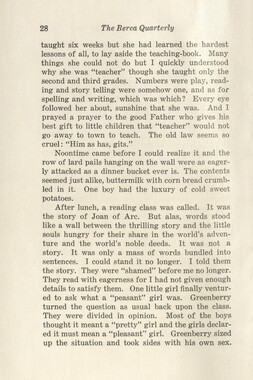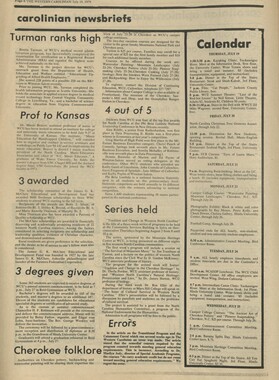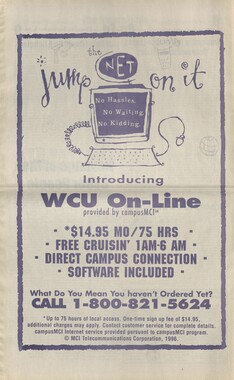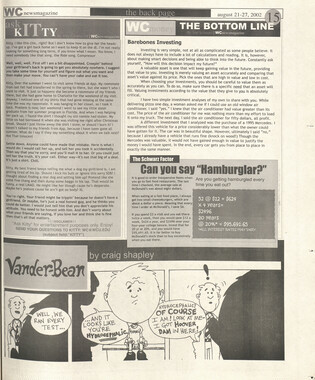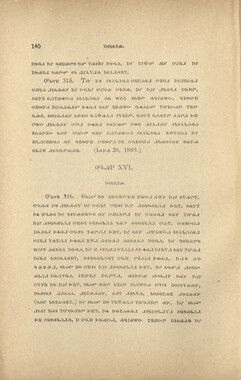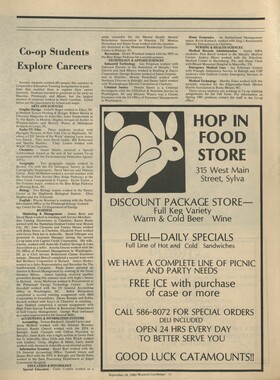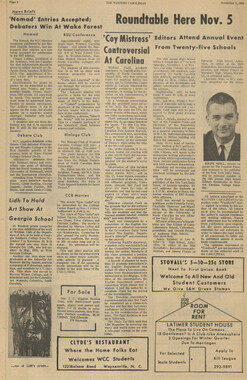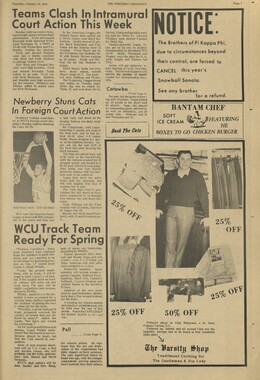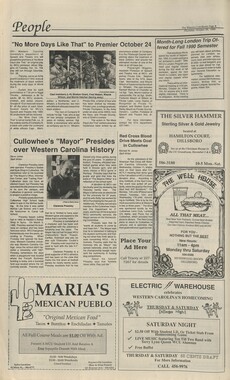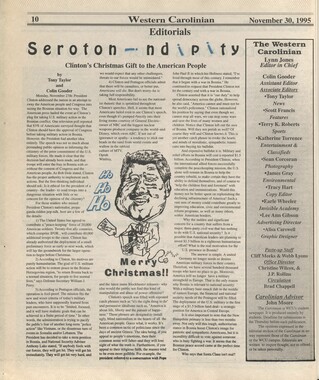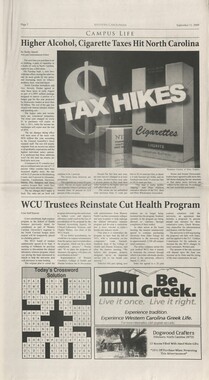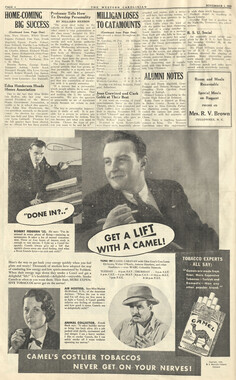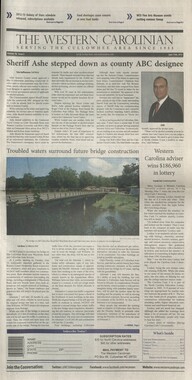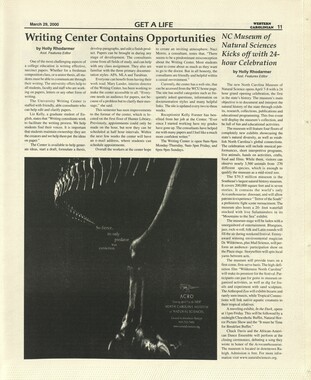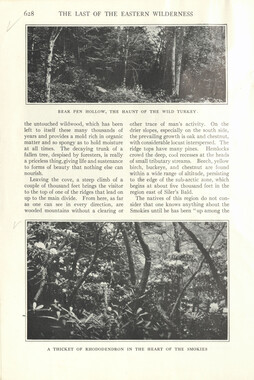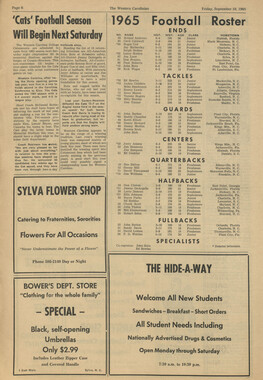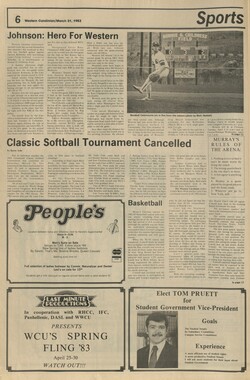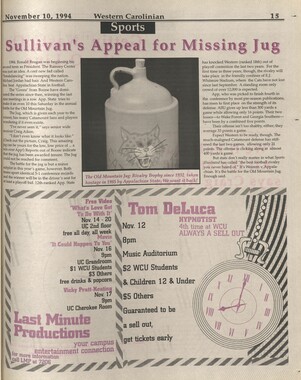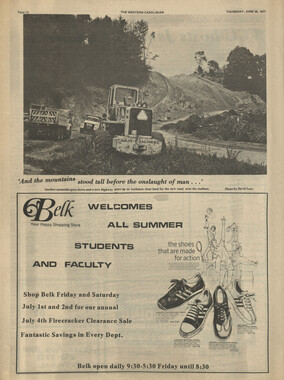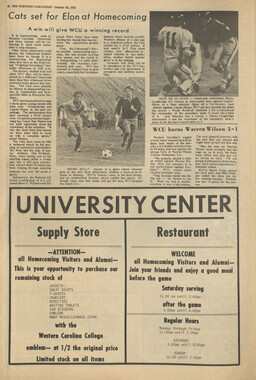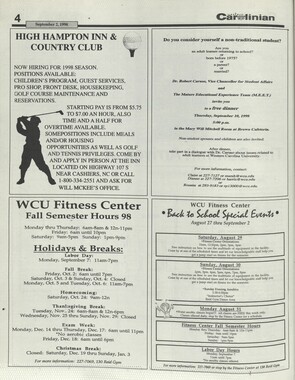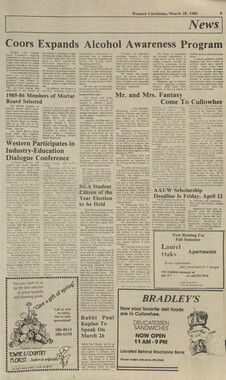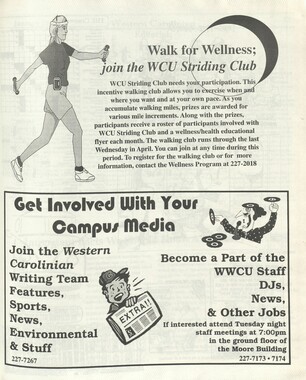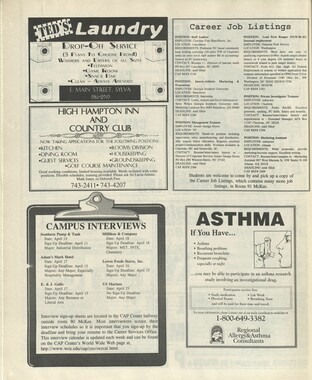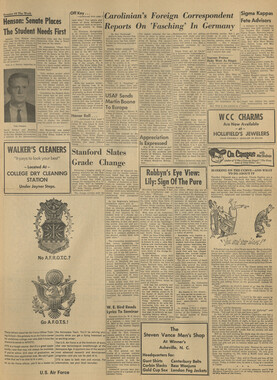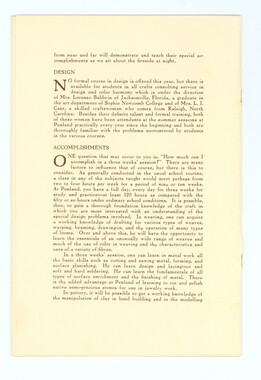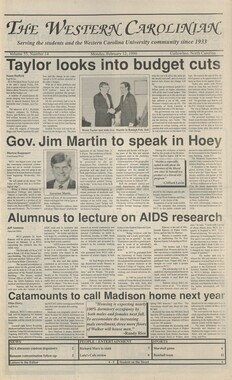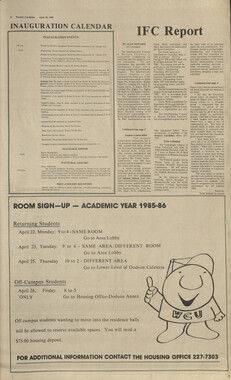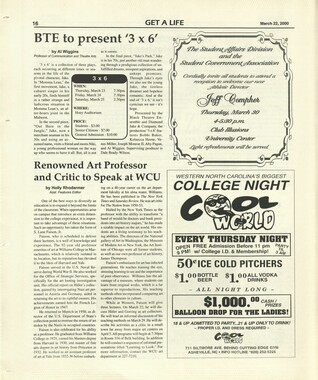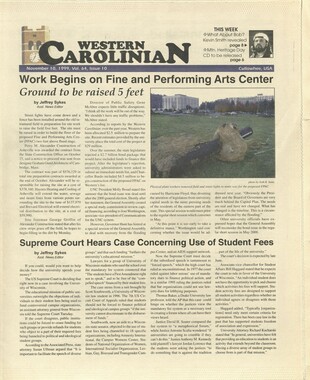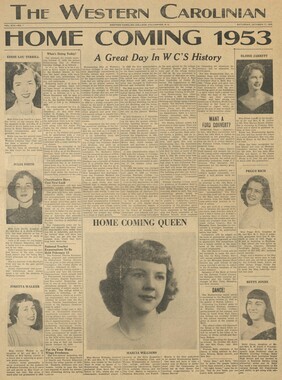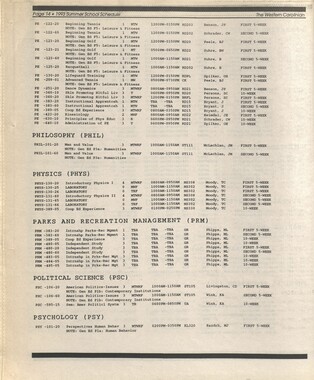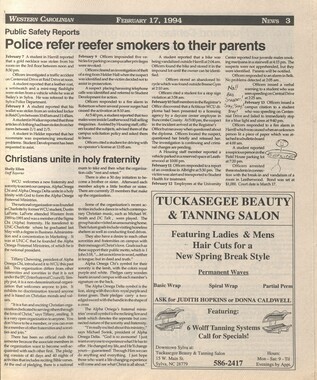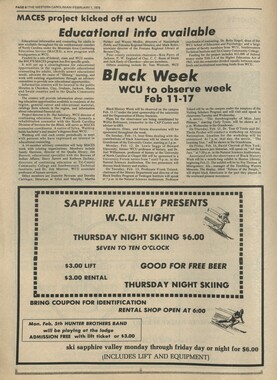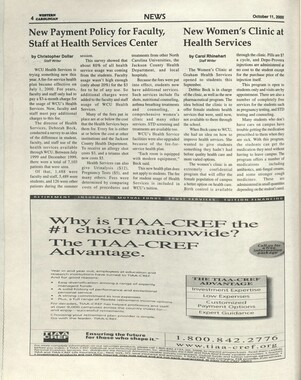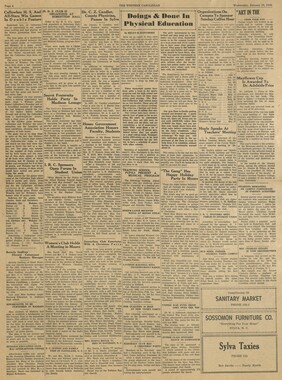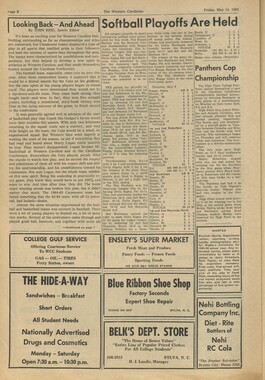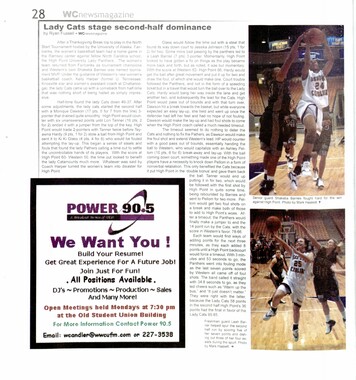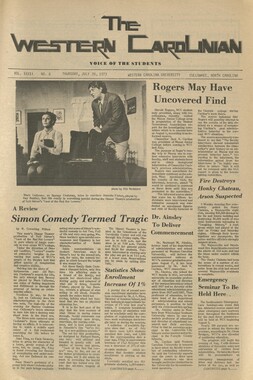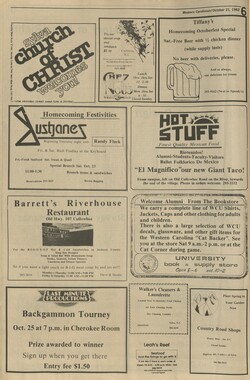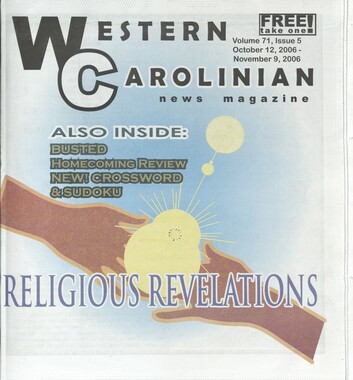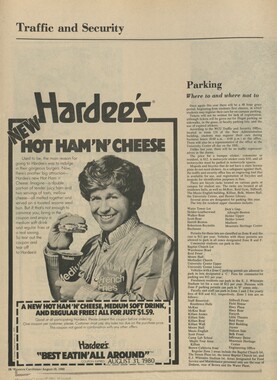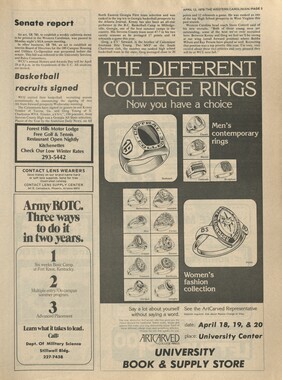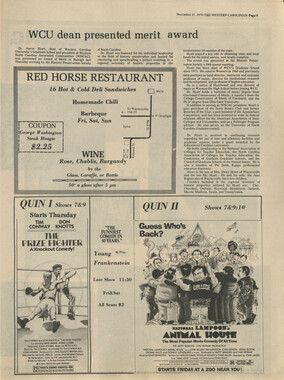Western Carolina University (21)
View all
- Canton Champion Fibre Company (2308)
- Cherokee Traditions (291)
- Civil War in Southern Appalachia (165)
- Craft Revival (1942)
- George Masa Collection (137)
- Great Smoky Mountains - A Park for America (3182)
- Highlights from Western Carolina University (422)
- Horace Kephart (998)
- Journeys Through Jackson (159)
- LGBTQIA+ Archive of Jackson County (90)
- Oral Histories of Western North Carolina (318)
- Picturing Appalachia (6617)
- Stories of Mountain Folk (413)
- Travel Western North Carolina (153)
- Western Carolina University Fine Art Museum Vitreograph Collection (129)
- Western Carolina University Herbarium (92)
- Western Carolina University: Making Memories (738)
- Western Carolina University Publications (2491)
- Western Carolina University Restricted Electronic Theses and Dissertations (146)
- Western North Carolina Regional Maps (71)
- World War II in Southern Appalachia (131)
University of North Carolina Asheville (6)
View all
- Allanstand Cottage Industries (62)
- Appalachian National Park Association (53)
- Bennett, Kelly, 1890-1974 (1463)
- Berry, Walter (76)
- Brasstown Carvers (40)
- Carver, George Washington, 1864?-1943 (26)
- Cathey, Joseph, 1803-1874 (1)
- Champion Fibre Company (233)
- Champion Paper and Fibre Company (297)
- Cherokee Indian Fair Association (16)
- Cherokee Language Program (22)
- Crowe, Amanda (40)
- Edmonston, Thomas Benton, 1842-1907 (7)
- Ensley, A. L. (Abraham Lincoln), 1865-1948 (275)
- Fromer, Irving Rhodes, 1913-1994 (70)
- George Butz (BFS 1907) (46)
- Goodrich, Frances Louisa (120)
- Grant, George Alexander, 1891-1964 (96)
- Heard, Marian Gladys (60)
- Kephart, Calvin, 1883-1969 (15)
- Kephart, Horace, 1862-1931 (313)
- Kephart, Laura, 1862-1954 (91)
- Laney, Gideon Thomas, 1889-1976 (439)
- Masa, George, 1881-1933 (61)
- McElhinney, William Julian, 1896-1953 (44)
- Niggli, Josephina, 1910-1983 (10)
- North Carolina Park Commission (105)
- Osborne, Kezia Stradley (9)
- Owens, Samuel Robert, 1918-1995 (11)
- Penland Weavers and Potters (36)
- Roberts, Vivienne (15)
- Roth, Albert, 1890-1974 (142)
- Schenck, Carl Alwin, 1868-1955 (1)
- Sherrill's Photography Studio (2565)
- Southern Highland Handicraft Guild (127)
- Southern Highlanders, Inc. (71)
- Stalcup, Jesse Bryson (46)
- Stearns, I. K. (213)
- Thompson, James Edward, 1880-1976 (226)
- United States. Indian Arts and Crafts Board (130)
- USFS (683)
- Vance, Zebulon Baird, 1830-1894 (1)
- Weaver, Zebulon, 1872-1948 (58)
- Western Carolina College (230)
- Western Carolina Teachers College (282)
- Western Carolina University (2008)
- Western Carolina University. Mountain Heritage Center (18)
- Whitman, Walt, 1819-1892 (10)
- Wilburn, Hiram Coleman, 1880-1967 (73)
- Williams, Isadora (3)
- Cain, Doreyl Ammons (0)
- Crittenden, Lorraine (0)
- Rhodes, Judy (0)
- Smith, Edward Clark (0)
- Appalachian Region, Southern (3032)
- Asheville (N.C.) (1945)
- Avery County (N.C.) (26)
- Blount County (Tenn.) (200)
- Buncombe County (N.C.) (1680)
- Cherokee County (N.C.) (283)
- Clay County (N.C.) (556)
- Graham County (N.C.) (247)
- Great Smoky Mountains National Park (N.C. and Tenn.) (535)
- Haywood County (N.C.) (3573)
- Henderson County (N.C.) (70)
- Jackson County (N.C.) (4926)
- Knox County (Tenn.) (61)
- Knoxville (Tenn.) (21)
- Lake Santeetlah (N.C.) (14)
- Macon County (N.C.) (421)
- Madison County (N.C.) (216)
- McDowell County (N.C.) (39)
- Mitchell County (N.C.) (135)
- Polk County (N.C.) (35)
- Qualla Boundary (982)
- Rutherford County (N.C.) (78)
- Swain County (N.C.) (2187)
- Transylvania County (N.C.) (270)
- Watauga County (N.C.) (12)
- Waynesville (N.C.) (86)
- Yancey County (N.C.) (72)
- Aerial Photographs (3)
- Aerial Views (60)
- Albums (books) (4)
- Articles (1)
- Artifacts (object Genre) (228)
- Bibliographies (1)
- Biography (general Genre) (2)
- Cards (information Artifacts) (38)
- Clippings (information Artifacts) (193)
- Copybooks (instructional Materials) (3)
- Crafts (art Genres) (622)
- Depictions (visual Works) (21)
- Design Drawings (1)
- Digital Moving Image Formats (2)
- Drawings (visual Works) (185)
- Envelopes (115)
- Exhibitions (events) (1)
- Facsimiles (reproductions) (1)
- Fiction (general Genre) (4)
- Financial Records (12)
- Fliers (printed Matter) (67)
- Glass Plate Negatives (381)
- Guidebooks (2)
- Internegatives (10)
- Interviews (823)
- Land Surveys (102)
- Letters (correspondence) (1070)
- Manuscripts (documents) (618)
- Maps (documents) (177)
- Memorandums (25)
- Minutes (administrative Records) (59)
- Negatives (photographs) (6192)
- Newsletters (1290)
- Newspapers (2)
- Notebooks (8)
- Occupation Currency (1)
- Paintings (visual Works) (1)
- Pen And Ink Drawings (1)
- Periodicals (194)
- Personal Narratives (10)
- Photographs (12977)
- Plans (maps) (1)
- Poetry (6)
- Portraits (4573)
- Postcards (329)
- Programs (documents) (181)
- Publications (documents) (2444)
- Questionnaires (65)
- Relief Prints (26)
- Sayings (literary Genre) (1)
- Scrapbooks (282)
- Sheet Music (2)
- Slides (photographs) (402)
- Songs (musical Compositions) (2)
- Sound Recordings (802)
- Specimens (92)
- Speeches (documents) (18)
- Tintypes (photographs) (8)
- Transcripts (329)
- Text Messages (0)
- A.L. Ensley Collection (275)
- Appalachian Industrial School Records (7)
- Appalachian National Park Association Records (336)
- Axley-Meroney Collection (2)
- Bayard Wootten Photograph Collection (20)
- Bethel Rural Community Organization Collection (7)
- Blumer Collection (5)
- C.W. Slagle Collection (20)
- Canton Area Historical Museum (2110)
- Carlos C. Campbell Collection (564)
- Cataloochee History Project (64)
- Cherokee Studies Collection (4)
- Daisy Dame Photograph Album (5)
- Daniel Boone VI Collection (1)
- Doris Ulmann Photograph Collection (112)
- Elizabeth H. Lasley Collection (1)
- Elizabeth Woolworth Szold Fleharty Collection (4)
- Frank Fry Collection (95)
- George Masa Collection (173)
- Gideon Laney Collection (452)
- Hazel Scarborough Collection (2)
- Hiram C. Wilburn Papers (28)
- Historic Photographs Collection (236)
- Horace Kephart Collection (861)
- Humbard Collection (33)
- Hunter and Weaver Families Collection (1)
- I. D. Blumenthal Collection (4)
- Isadora Williams Collection (4)
- Jesse Bryson Stalcup Collection (47)
- Jim Thompson Collection (224)
- John B. Battle Collection (7)
- John C. Campbell Folk School Records (80)
- John Parris Collection (6)
- Judaculla Rock project (2)
- Kelly Bennett Collection (1482)
- Love Family Papers (11)
- Major Wiley Parris Civil War Letters (3)
- Map Collection (12)
- McFee-Misemer Civil War Letters (34)
- Mountain Heritage Center Collection (4)
- Norburn - Robertson - Thomson Families Collection (44)
- Pauline Hood Collection (7)
- Pre-Guild Collection (2)
- Qualla Arts and Crafts Mutual Collection (12)
- R.A. Romanes Collection (681)
- Rosser H. Taylor Collection (1)
- Samuel Robert Owens Collection (94)
- Sara Madison Collection (144)
- Sherrill Studio Photo Collection (2558)
- Smoky Mountains Hiking Club Collection (616)
- Stories of Mountain Folk - Radio Programs (374)
- The Reporter, Western Carolina University (510)
- Venoy and Elizabeth Reed Collection (16)
- WCU Gender and Sexuality Oral History Project (36)
- WCU Mountain Heritage Center Oral Histories (25)
- WCU Oral History Collection - Mountain People, Mountain Lives (71)
- WCU Students Newspapers Collection (1923)
- Western North Carolina Tomorrow Black Oral History Project (69)
- William Williams Stringfield Collection (2)
- Zebulon Weaver Collection (109)
- African Americans (390)
- Appalachian Trail (35)
- Artisans (521)
- Cherokee art (84)
- Cherokee artists -- North Carolina (10)
- Cherokee language (21)
- Cherokee pottery (101)
- Cherokee women (208)
- Church buildings (190)
- Civilian Conservation Corps (U.S.) (114)
- College student newspapers and periodicals (2012)
- Dams (115)
- Dance (1023)
- Education (222)
- Floods (63)
- Folk music (1015)
- Forced removal, 1813-1903 (2)
- Forest conservation (220)
- Forests and forestry (1198)
- Gender nonconformity (4)
- Great Smoky Mountains National Park (N.C. and Tenn.) (181)
- Hunting (47)
- Landscape photography (25)
- Logging (122)
- Maps (83)
- Mines and mineral resources (9)
- North Carolina -- Maps (18)
- Paper industry (38)
- Postcards (255)
- Pottery (135)
- Railroad trains (72)
- Rural electrification -- North Carolina, Western (3)
- School integration -- Southern States (2)
- Segregation -- North Carolina, Western (5)
- Slavery (5)
- Sports (452)
- Storytelling (243)
- Waterfalls -- Great Smoky Mountains (N.C. and Tenn.) (66)
- Weaving -- Appalachian Region, Southern (280)
- Wood-carving -- Appalachian Region, Southern (328)
- World War, 1939-1945 (174)
Western Carolinian Volume 77 Number 01
Item
Item’s are ‘child’ level descriptions to ‘parent’ objects, (e.g. one page of a whole book).
-
-
WE STERN CAROLINIAN CAMPUS VIEWS January 28th, 2011 ~ Rumor Has It Bartending licenses given at Western? Leonard Pitts, Associated Content Lex Menz, WC Editor (Editor's Note: The fol- lowing is an ongoing feature where Western Carolinian editor Lex Menz looks into rumors.) : : When students were registering for their spring semester classes, the lat- est rumor around campus was that a bar and beverage course was available. In the course, students would leave with their bartending license in May, That rumor is false. There is a Bar and Bev- erages Operation course. However, the course does not offer a bartending |i- cense or a curriculum involving mixing many drinks. As professor, Carroll Brown offers a course that helps students learn about food and bar procedures. At the end of the semester, students will receive a Re- sponsible Alcohol Service Procedure certificate from the North Carolina ABC Commission that proves: they can safely serve alco- hol to the public. They do taste but they dont mix, said Brown, adding that a certified bar- tender comes in to class. We dont do that (a drink, mixing course) here. We fly low, she added with a DING SCHOOL At Western Carolina, students do not mix drinks, such as pictured. chuckle. Previously, the course was required for Hospital- ity and Tourism majors, but the class became so popular that now it is avail- able to everyone. The only prerequisite for the course is that students must be 21 years of age or older to reg- ister. Stuart Strickland, who previously took the course, . explained, We learned a few recipes... about differ- ent types of mixed drinks and the right procedures on how to mix drinks. The curriculum - also involves a project for stu- dents to create with their new knowledge of bars, food, and alcohol. They get to design their own. bar and beverage es- tablishment, said Brown. I did a lounge that specialized in serving pre- mium shelved liquor, said Strickland about his fic- tional bar. There were a couple of pool tables, not loud music... just a pretty cool place to chill. No one got drunk there; thats not what it was for. For anyone interested in the course, Brown said, it stays packed. For those who were un- able to register this semes- ter due to overcapacity, the course will be offered again in the May mini-mester. Offer only valid at this location: 284 E. Main St. Sylva + 828.631.3100 Huck Finn censorship is wrong It is, perhaps, the seminal moment in American litera- ture. Young Huck Finn, try- ing to get right with God and save his soul from a forever of fire, sits there with the freshly written note in hand. Miss Watson, it says, your runaway nigger Jim is down here two mile below Pikes- ville and Mr. Phelps has got him and he will give him up for the reward if you send. Huck knows it is a sin to steal and he is whipped by guilt for the role he has played in helping the slave Jim steal himself from a poor old woman who never did Huck any harm. But see, Jim has become Hucks friend, has sacrificed for him, wor- ried about him, laughed and sung with him, depended upon him. So what, really, is the right thing to do? I was a-trembling, says Huck, because Id got to decide, forever, betwixt two things and I knowed it. I stud- ied a minute, sort of holding my breath, and then says to myself! All right, then, 1U go to hell and tore it up. When NewSouth Books releases its new version of Mark Twains Adventures of Huckleberry Finn next month, that revelatory mo- ment will contain one trou- bling change. Publishers Weekly reported last week that in this edition, edited by Twain scholar Alan Gribben of Auburn University, all 219 occurrences of the so-called N-word will be cut. Hucks note will now call Jim a run- away SLAVE. Twains use of the word Injun will also be struck. Gribben brings good in- tentions to this act of liter- ary graffiti, this attempt. to impose political correctness upon the most politically in- correct of American authors. He told PW that many teach- ers feel they cant use the book in their classrooms .be- cause children simply cannot get past that incendiary word. My daughter, he said, went to a magnet school and one of her best friends was an African-American girl. She loathed the book, could barely read it. But while Gribbens in- tentions are good, his fix is profoundly wrong. There are several reasons why. In the first place, any work _ of art represents a series of conscious choices on the part of the artist - what color to paint, what note to play, what word to use in that artists attempt to share what is in his or her soul. The audience is free to accept or reject those choices; it is emphatically NOT free to substitute its own. In the second. place, it is never a good idea to sugar- coat the past. The past is what it is, immutable and non- negotiable. Even a cursory glance at the historical record will show that Twains use of the reprehensible word was an accurate reflection of that era. So it would be more use- ful to have any new edition offer students context and challenge them to ask hard questions: WHY did Twain choose that word? What kind of country must this have been that it was so ubiqui- tous? How hardy is the weed of self-loathing that many black people rationalize and justify its use, even now? fT mean, has the black girl Gribben mentions never heard of Chris Rock or Snoop Dogg? j Finally, and in the third place, it is troubling to think the state of reading compre- hension in this country has become this wretched, that we have tweeted, PlaySta- tioned and Fox Newsd so much of our intellectual ca- pacity away that not only can our children not divine the nuances of a masterpiece, but, that we will now protect them from having to even try. Huck Finn is. a funny, subversive story about a run- away white boy who comes to locate the humanity in a runaway black man and, in the process, vindicates his own. It has always, until now, been regarded as a timeless tale. But that was before Amer- ica became an intellectual backwater that would deem it necessary to censor its most celebrated author. The one consolation is that somewhere, Mark Twain is laughing his head off. AXBY'S .
Object
Object’s are ‘parent’ level descriptions to ‘children’ items, (e.g. a book with pages).
-
The Western Carolinian is Western Carolina University's student-run newspaper. The paper was published as the Cullowhee Yodel from 1924 to 1931 before changing its name to The Western Carolinian in 1933.
-
